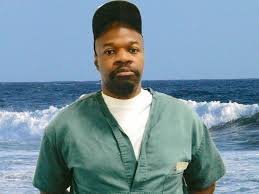Christopher Scarver is a name that has gained infamy in the criminal world due to his involvement in one of the most shocking incidents in prison history. His actions, particularly in connection with the notorious serial killer Jeffrey Dahmer, have made him a subject of curiosity, speculation, and debate. This article delves deep into the life, crimes, and the psychological aspects of Christopher Scarver shedding light on his background, motivations, and the consequences of his actions.
Table of Contents
Who is Christopher Scarver?
Christopher Scarver was born on July 6, 1969, in Milwaukee, Wisconsin. He grew up in a troubled household and faced several challenges during his early life. As a young man, he struggled with education and employment, which eventually led him down a dark path. Christopher Scarver‘s descent into crime was fueled by substance abuse, mental health issues, and societal neglect. His early life experiences played a crucial role in shaping the individual he would later become.
The Crime That Led to His Imprisonment
Before his infamous encounter with Jeffrey Dahmer, Christopher Scarver was convicted of a separate murder. In 1990, he was found guilty of killing a Wisconsin Conservation Corps supervisor. The incident occurred after Christopher Scarver believed that he was owed money for work but was denied payment. Fueled by anger and instability, he committed the crime that would land him in prison for life. This event marked the beginning of his journey within the U.S. penal system, setting the stage for the events that would later make headlines.
Life in Prison: A Struggle with Mental Illness

While incarcerated, Christopher Scarver was diagnosed with schizophrenia. He reportedly experienced auditory hallucinations and harbored deep paranoia. Prison environments can be harsh for individuals with mental health conditions, and Christopher Scarver found himself battling both his inner demons and the external challenges of life behind bars. His mental illness played a significant role in the tragic event that later unfolded.
The Killing of Jeffrey Dahmer and Jesse Anderson
On November 28, 1994, Christopher Scarver was assigned to work detail alongside Jeffrey Dahmer and another inmate, Jesse Anderson. According to reports, the three men were left unsupervised for a short period in the prison gym’s bathroom. It was during this time that Christopher Scarver attacked both Dahmer and Anderson with a metal rod from the prison weight room.
Dahmer, known for his gruesome crimes and cannibalistic tendencies, was one of the most hated prisoners in the facility. Christopher Scarver later stated that he believed he was carrying out justice by attacking Dahmer. Anderson, another inmate convicted of murder, was also targeted during the assault. Both men sustained severe injuries, and Jeffrey Dahmer succumbed to his wounds shortly after the attack.
Motive Behind the Attack
The reasons behind Christopher Scarver‘s actions remain a topic of discussion. In interviews, he has claimed that divine intervention guided him to kill Dahmer. He also alleged that Dahmer had exhibited disturbing behavior in prison, such as taunting fellow inmates by shaping food into body parts, which further fueled his anger.
Psychologists and criminologists have debated whether Christopher Scarver acted out of personal vendetta, mental illness, or a mix of both. His schizophrenia diagnosis suggests that his perception of reality may have been distorted at the time of the attack. However, some believe that Christopher Scarver genuinely felt that he was delivering justice.
Public Reaction and Media Coverage
The killing of Jeffrey Dahmer by Christopher Scarver garnered widespread media attention. Many people viewed Dahmer’s death as a form of poetic justice, considering the horrors he had inflicted on his victims. Some even saw Christopher Scarver as a vigilante, delivering a form of retribution that the legal system could not. However, others viewed the incident as another failure of the prison system to protect inmates from violence.
Christopher Scarver’s Life After the Incident

Following the attack, Christopher Scarver was placed in solitary confinement for an extended period. His mental health continued to deteriorate, and he was later transferred to different correctional facilities, including those that provide psychiatric care for inmates with severe mental illnesses.
In the years following the incident, Christopher Scarver has spoken about his actions in various interviews. He has expressed that he had no regrets about killing Dahmer, as he believed it was the right thing to do. Despite being locked away, his story continues to be a point of discussion in criminology and psychology circles.
Impact on the Criminal Justice System
The case of Christopher Scarver highlights several issues within the U.S. prison system, particularly the management of mentally ill inmates. The failure to supervise high-risk prisoners and provide adequate mental health care has been criticized by experts. The attack on Dahmer and Anderson raised questions about the responsibility of prison authorities in ensuring the safety of all inmates, regardless of their crimes.
Christopher Scarver in Popular Culture
Due to the high-profile nature of his actions, Christopher Scarver has been referenced in various books, documentaries, and even television shows. His story is often intertwined with that of Jeffrey Dahmer, making him an infamous figure in true crime history. While Dahmer remains the primary focus of most media portrayals, Christopher Scarver‘s role in ending Dahmer’s life continues to be a subject of interest.
Also read Damiano David The Charismatic Frontman of Måneskin
Final Thoughts: Who is Christopher Scarver Today?
Today, Christopher Scarver remains incarcerated, serving multiple life sentences. His life serves as a complex case study of crime, mental illness, and the impact of the prison system on individuals with psychological disorders. While some view him as a vigilante, others see him as a tragic figure shaped by circumstances beyond his control.
The story of Christopher Scarver is one that provokes debate on justice, morality, and the failures of the correctional system. Regardless of how one views his actions, his name will forever be linked to one of the most notorious figures in criminal history.


